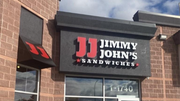News
Coalition for Sustainable Egg Supply hen housing study found 'trade-offs' for each system
'Depending on the goals and perspectives of a food production company, egg producer or other food system stakeholder, those trade-offs may be weighed differently.'
March 20, 2015
The Coalition for Sustainable Egg Supply, providing food system stakeholders with science-based information on sustainability factors to guide informed production and purchasing decisions, released the results of its hen housing research evaluating three laying hen housing systems based on sustainability measures. The results can be found at www.sustainableeggcoalition.org/final-results.
CSES conducted the commercial-scale study of conventional cage housing, cage-free aviary housing and enriched colony housing and their potential impacts on food safety, hen health and well-being, the environment, worker health, and safety and food affordability over a period of four years. The company intends for the results to inform producers, egg retailers, restaurants, suppliers and other stakeholders "so that they can make independent informed decisions that are ethically grounded, scientifically verified, economically viable and, ultimately, in alignment with the values of their customers and consumers," the organization said in the release.
"Before CSES, commercial scale research evaluating the different aspects of the sustainability of hen housing systems was lacking and a more holistic, integrative approach was necessary," said Dr. Janice Swanson, CSES co-scientific director and professor of animal science at Michigan State University, in a statement. "With these science-based research results, we have a better understanding of hen housing sustainability and can provide that information to industry stakeholders to support informed decision-making."
"The research found there are positive and negative impacts and trade-offs associated with each of the three hen housing systems. Depending on the goals and perspectives of a food production company, egg producer or other food system stakeholder, those trade-offs may be weighed differently," said Dr. Joy Mench, CSES co-scientific director and professor of animal science at the University of California, Davis.
"When animals are involved, evaluating their welfare is a crucial aspect of any production system," said Dr. Marion Garcia, chief veterinary officer and director of the Animal Welfare Research Institute, American Humane Association, in the statement. "But to truly achieve sustainability, a variety of other factors such as the environment, the health and safety of the workers, food safety and quality, and affordability of what’s produced should also be considered, effectively evaluating the entire system."
CSES, facilitated by the Center for Food Integrity, is a multistakeholder coalition of animal welfare scientists, academic institutions, non-government organizations, egg suppliers, and restaurant/foodservice and food retail companies. Researchers at Michigan State University and University of California, Davis led the study. Researchers at Iowa State University, USDA Agricultural Research Service and Cargill also contributed.












